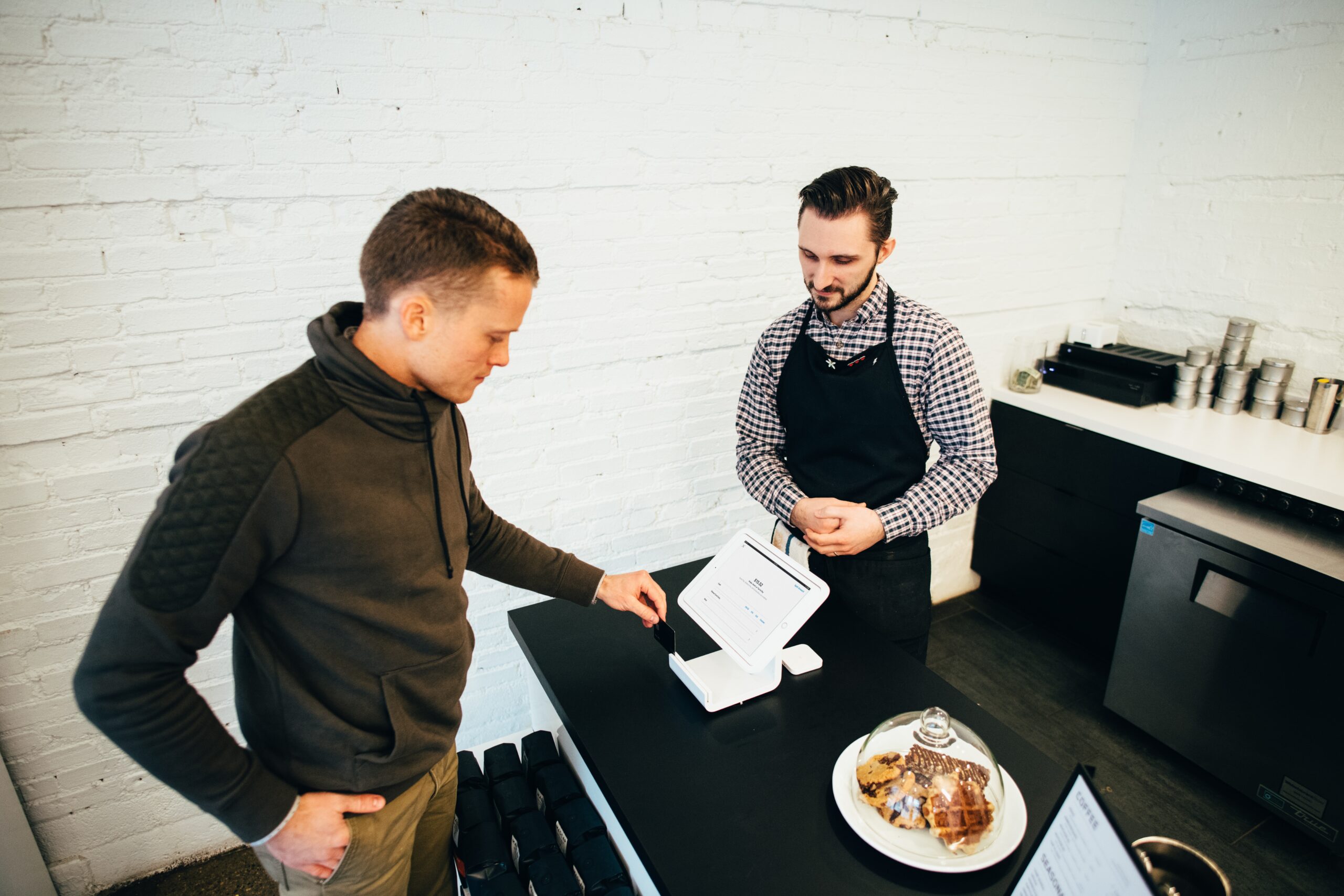Here’s a tip – Stop taking advantage of customers

Stopping for coffee on the way to class, grabbing lunch on the way home or going to dinner for a special occasion, one thing is for sure – you’re going to be asked to tip.
It is standard practice to tip servers at sit-down restaurants anywhere from 15-20%. Now, coffee shops, cafes and fast food restaurants have started to expect this same generosity.
Employers need to pay their employees reasonable wages rather than over-relying on customers to make up the difference in tips.
During the pandemic, more people extended the courtesy of tipping essential workers to show gratitude. But post-COVID-19, businesses are still encouraging these increased tipping rates.
In 2022, 48% of purchases made at fast food restaurants and coffee shops came with a request for a tip. This is up 11% from before the pandemic.
Restaurants that only offer counter service need to stop pushing customers to give tips. It’s frustrating for both the employees and patrons, and it allows employers to avoid paying a livable wage by pushing this responsibility onto customers.
The frustration customers feel when being bombarded by requests for tips, or “tip fatigue,” has been leaving them exhausted and making them want to stop tipping employees altogether.
Students are not immune to this, with on-campus restaurants like Starbucks and Panera asking for tips as well. College students make the least out of any age group and don’t have much extra money to spend on excessive tipping.
USF senior Ally Pham said the expectation to tip at certain places has affected her experiences as a customer.
“I personally think it’s unnecessary but often I feel guilty if I don’t tip,” she said in a Tuesday interview with The Oracle.
Rather than a tip jar sitting on the counter, customers are faced with a screen giving them preset options of how much to tip.
When customers are bombarded with requests to tip – sometimes more than they would at a full-service restaurant – it leaves them frustrated and less likely to tip anywhere.
In the past year, tips for servers have gone down by 10%. This is in part due to inflation, and partly due to consumers feeling overwhelmed by the number of businesses that have the option to tip with a card on a tablet.
Nearly two-thirds of Americans have a negative view of tipping, according to a July 5 survey by Bankrate. This affects people like sit-down servers, who actually rely on tips as the majority of their income.
Many employers use this new tipping culture as a way to entice applicants. When advertising the wage, they add a few dollars onto what they actually pay to account for possible tips.
This isn’t fair as tips are not guaranteed and the customers should not feel pressured to make sure employees are paid a reasonable wage. That responsibility is on the employer.
“The wage workers are receiving isn’t sufficient. So now everybody is using this very weird way to increase wages while maintaining the same menu price,” said Boston University professor Sean Jung in a July 5 interview with NPR.
Employers often argue that removing the pressure for tips would mean an increase in prices, since they can no longer rely on tips as a part of the employees’ wages.
“If customers completely stopped tipping, we would be forced to pay employees more, and it would be hard on us as business operators in this crazy environment of rising costs,” said Zachary Cheaney, owner of Main Squeeze Juice Co.
However, customers would actually prefer this. When asked if they would be willing to pay higher prices if they were not asked to tip, 62% of people said they would.
Tipping is a nice gesture, but it should not be expected everywhere. When people are pressured with requests to tip on top of what they are already paying, they start to feel uncomfortable.
It’s also unfair to place this pressure on students who are often struggling to get by themselves.
It leaves them feeling frustrated and taken advantage of. Employers, especially those on and around a college campus, should not be pushing the responsibility of paying their workers onto their patrons.






